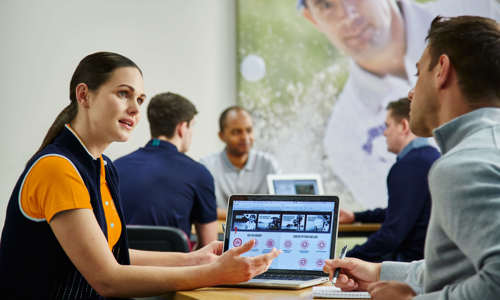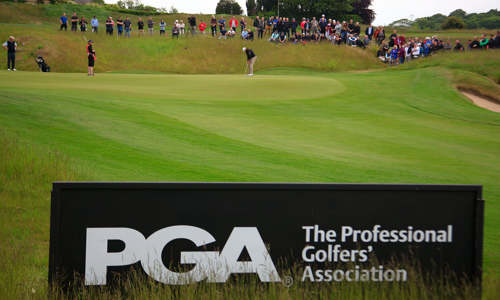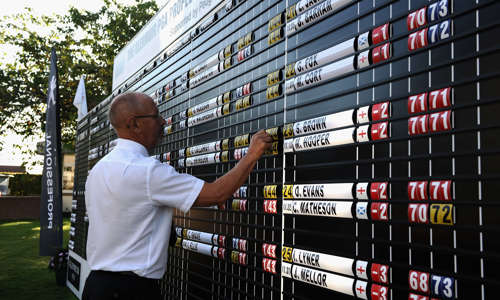What do you remember about your PGA training?
I started the course in 2007 and graduated in 2010 with a PGA Foundation degree. It was distance learning but I did the residential at The Belfry. We covered all aspects of the game and I particularly enjoyed the coaching side of it. Anyone who does coaching will appreciate how you really get to know someone. When you give a lesson you develop a rapport with people and it’s not just about the golf.
What new skills have been most beneficial in your teaching journey?
I had never seen a launch monitor before I started working at Close House, I immediately thought that this was the future of coaching and I dedicated a lot of time to understanding how to get the most out of it. I now have my TrackMan University Levels 1 and 2.
A lot of people can get baffled by launch monitors. The coach doesn’t necessarily need it but it enables them to show the player what they are doing. You can put a number on someone’s in-to-out swing or attack angle, it’s such a good way of communicating what is happening in the swing.
I will probably have only four or five numbers on show at one time to get the player to focus on the specific parts of their swing that we’re working on.
What works best with coaching women beginners?
A lot of women’s coaching for beginners is group based so we don’t tend to use a lot of technology. However, most beginners are excited to see how far the ball’s gone, so we might look at some ball flight data but nothing overly technical. In groups, I tend to focus on the short game as that always works well especially with mixed ability groups.
We will have a coffee at the beginning or the end of the session or we’ll go to the range and play the short course and then have afternoon tea which is always a popular one. The social side is really important for recruiting and retaining women in golf.
What is your teaching style?
I strongly believe that there isn’t just one way to swing the club, you can do it many ways. I look at the ball flight and try to improve that. I won’t change anything for the sake of how it might look. There are a lot of different swings on TV but coming into impact is where things look very similar. I like to use technology but I also like to get the players away from the numbers too with some short game.

































